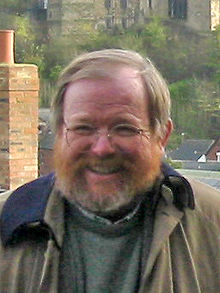
I am a big fan of the British-American writer Bill Bryson. And I think it’s unfair that he tends to get categorised as a travel writer. He is much more than that, though it is very difficult to categorise him. His latest book is called The Road to Little Dribbling—More Notes From a Small Island. In this book, one of the things that Bryson talks about is the uniquely British phenomenon of attacks by cows on human beings, making national news.
As he writes: “In America, cow trampling would never make the national news other than in highly exceptional circumstances. If, let’s say, Dick Cheney was trampled to death by cows (and we can always dream), that would be national news.” But the same is clearly not true about Great Britan.
“In Britain if a single cow tramples a walker anywhere in the country, it will almost certainly make national headlines,” writes Bryson.
Cow attacks on human beings are pretty rare. But the surfeit of news in the British media about cow attacks, leads the British to believe that cow attacks are very common in Britain. This belief comes from reading about the attacks in the media at regular points of time.
Economists and psychologists refer to this tendency as an availability bias. As Leonard Mlodinow writes in The Drunkard’s Walk—How Randomness Rules Our Lives: “In reconstructing the past, we give unwarranted importance to memories that are most vivid and hence most available for retrieval. The nasty thing about the availability bias is that it insidiously distorts our views of the word by distorting our perception of past events and our environment.”
Air-crashes are an excellent example of this. As Jason Zweig writes in The Devil’s Financial Dictionary: “Flying is among the safest ways to travel, but on the rare occasions when an airplane does crash, the fireball on the runway is broadcast worldwide and burned into the brain of everyone who sees it.”
This leads people to believe that airplane travel is unsafe. But what they don’t realise is that the media does not report about the thousands of planes that land safely every day all over the world. It also does not report the many car crashes that happen all over the world every day, unless a celebrity is involved.
The same logic works in case of a stock market. Every big fall is reported on the front pages of newspapers and by the other media. As Zweig writes: “Market crashes are rare, too, but the spectacular damage they cause is also seared into the collective unconscious. That leads many investors to miss out on the gains stocks can generate during the surprisingly long periods between crashes.” Like safe airplane landings, the media does not report the small gains (or losses) that add up, over a period of time.
Further, the advent of cable TV has brought war into our drawing rooms. But is the world more unsafe that it was let’s say 70 years back or 100 years back or may be even 500 years back? The feeling that the world has become more unsafe than it was in the past, is another excellent example of the availability bias.
As Steven Pinker writes in an essay titled A History of Violence: “Several historians have suggested that there has been an increase in the number of recorded wars across the centuries to the present, but, as political scientist James Payne has noted, this may show only that “the Associated Press is a more comprehensive source of information about battles around the world than were sixteenth century monks.” Associated Press is a wire news agency, which reports from all over the world.
This is not to suggest that the world is a totally safe place and that wars have come to an end. Nevertheless, things are not as bad as they seem to be.
To conclude, dear reader, when you are reading a newspaper or a digital publication, it is always worth remembering that old saying in journalism: “If it bleeds, it leads.”
(Vivek Kaul is the author of the Easy Money trilogy. He can be reached at [email protected])
The column originally appeared in the Bangalore Mirror dated December 2, 2015